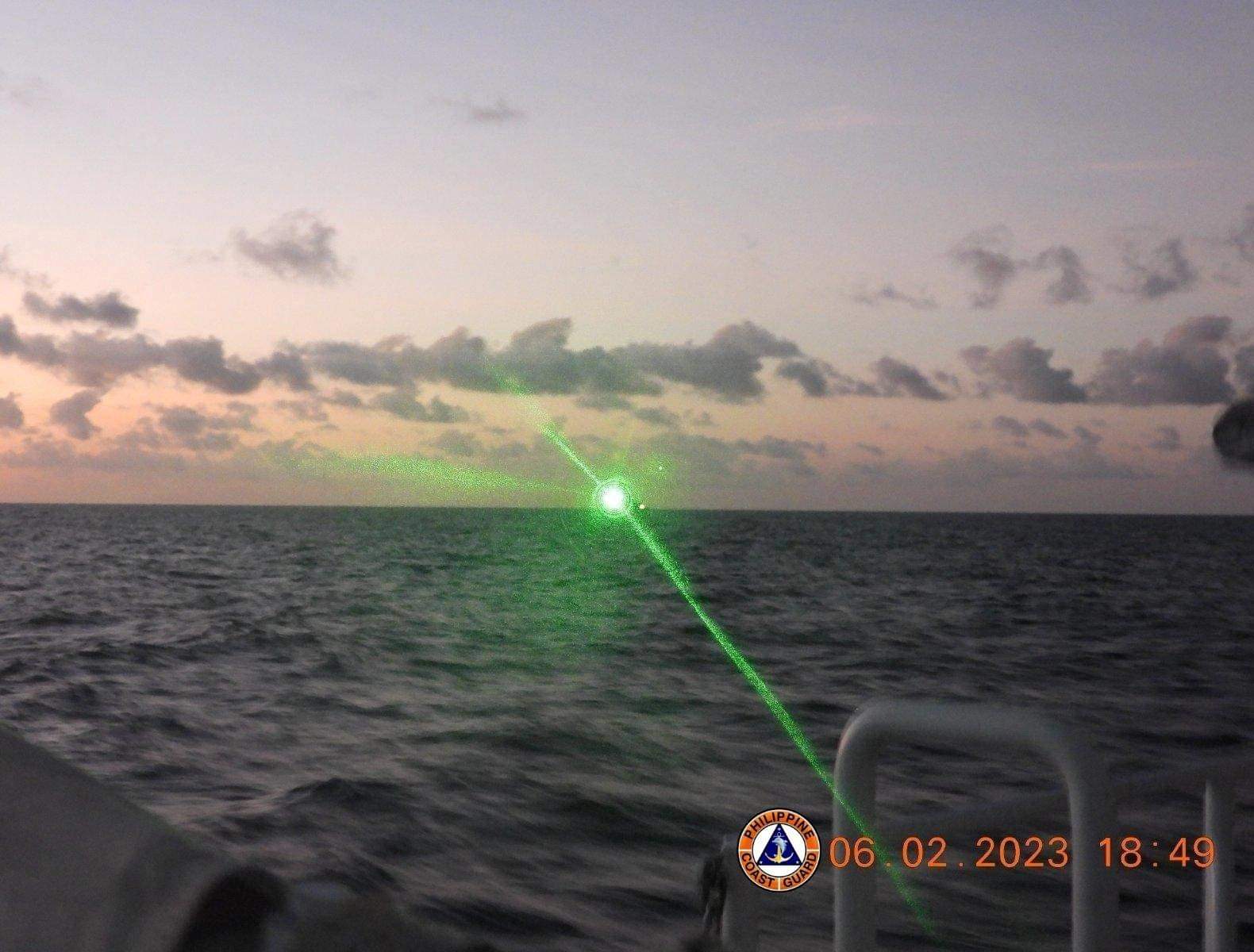News
Invoking MDT would only escalate tension between PH, China: PBBM

On Friday, the DFA asked China to engage the Philippines based on “truth and goodwill,” citing a disconnect in their statements and what is actually happening in the WPS after the laser-pointing incident. (File Photo: Philippine Coast Guard/Facebook)
MANILA – Invoking the Philippines’ 1951 Mutual Defense Treaty (MDT) with the United States (US) after the laser-pointing incident in the West Philippine Sea (WPS) would only escalate tensions with China, President Ferdinand R. Marcos Jr. said on Saturday.
In a chance interview in Baguio City, Marcos said it is “counterproductive” to resort to the MDT in the wake of the Chinese Coast Guard’s (CCG) use of a military-grade laser against the Philippine Coast Guard (PCG).
“If we activate that (MDT), what we are doing is escalating, intensifying the tensions in the area (WPS). And I think that would be counterproductive,” Marcos told reporters after the Philippine Military Academy’s (PMA) alumni homecoming in Fort del Pilar in Baguio City.
“Besides, despite the fact that it was a military-grade laser that was pointed at our Coast Guard, I do not think that it is sufficient for it to trigger the Mutual Defense Treaty,” he added.
A CCG vessel on Feb. 6 “shadowed” and pointed a military-grade laser toward the Philippine Coast Guard’s patrol vessel BRP Malapascua, temporarily blinding its crew, according to official government reports.
China defended its coast guard’s act as “professional and restrained” as it was merely a response to what it called “intrusion” into Chinese waters.
While he refused to invoke the MDT, Marcos said the Philippine government is in “constant” communication with its treaty partners, including the US.
“So, we are in constant contact, of course, with our treaty partners, not only with the United States but also our ASEAN (Association of Southeast Asian Nations) partners and our partners here in Asia. That I think is the better recourse rather than go directly to the Mutual Defense Treaty, which again I am very concerned would provoke the tensions rather than cool the tensions now,” he said.
Marcos on Tuesday summoned Chinese Ambassador to the Philippines Huang Xilian to Malacañan Palace in Manila to discuss the reported harassment by the CCG.
Asked what he told Huang, Marcos said he reminded the Chinese ambassador that the latest incident was incongruous with what he and Chinese President Xi Jinping had talked about in January to prevent possible misunderstanding in the WPS.
The President, nevertheless, remained optimistic that the Philippines and China would be able to resolve the issues being reported in the “past few weeks and months,” given that the two nations are “close friends.”
“We have to find a way around this. If we are such close friends, China and the Philippines, these are not the kind of incidents that we should be talking about between the President and the ambassador to the Philippines from China,” he said.
“So, we are hoping that we can find a better way rather than these incursions into our maritime territory and the rather aggressive acts that we have been seeing in the past few weeks and months.”
The Department of Foreign Affairs (DFA) on Tuesday filed its eighth diplomatic protest this year before the Chinese Embassy in Manila, calling on Beijing to “cease and desist” its aggressive activities against Philippine vessels.
Also on Tuesday, the Chinese Embassy in Manila said Marcos and Huang “exchanged views on how to implement the consensus reached by the two heads of state, strengthen dialogue and communication, and properly manage maritime differences between China and the Philippines.”
On Friday, the DFA asked China to engage the Philippines based on “truth and goodwill,” citing a disconnect in their statements and what is actually happening in the WPS after the laser-pointing incident.
It could be recalled that Marcos and Xi, in a joint statement released in January after their meeting in Beijing, agreed to establish a “direct communication mechanism” to safeguard peace and stability in the WPS.





















